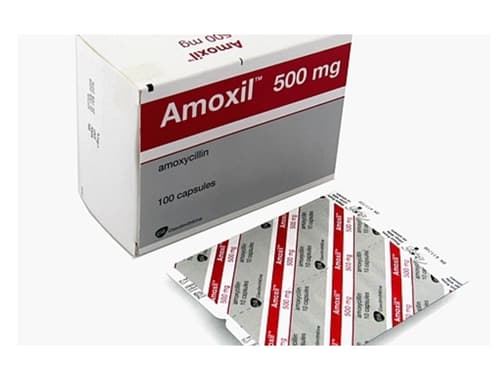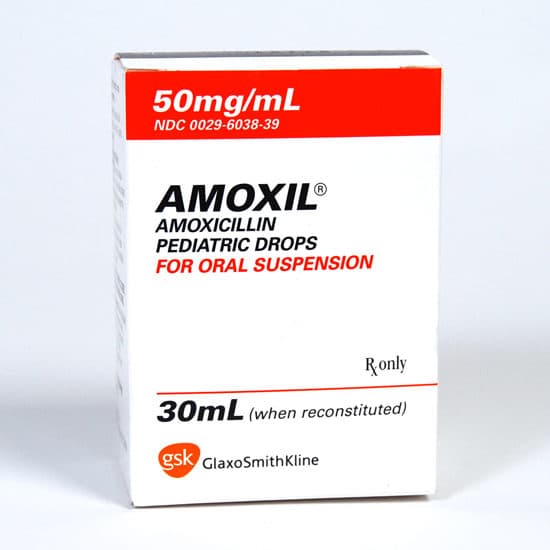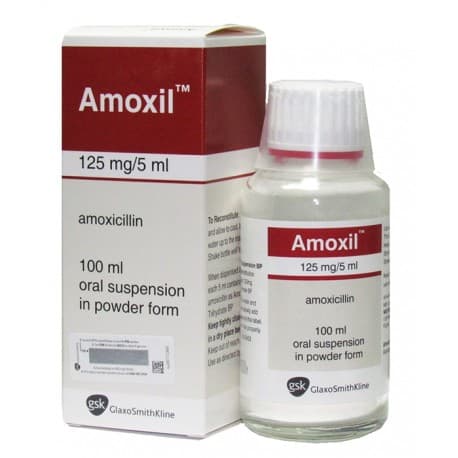Amoxil: Uses, Side Effects, Precautions And More
Amoxil is a penicillin antibiotic.
It is used to treat bacterial infections such as dental abscesses and chest infections (including pneumonia), tonsillitis, bronchitis, ear, nose, throat, skin or urinary tract infections.
The active ingredient of the drug Amoxil is ampicillin.
Amoxil can also be used with other medications and antibiotics to treat stomach ulcers.
It is often prescribed to children to treat chest infections and ear infections.
Amoxicillin, the active ingredient in the drug, comes not only as capsules, but also as liquid and injection.
Generally, the injection type is performed in environments such as hospitals.
What Will We Learn?
A Short Summary
- For most types of infections, you will start to feel better within a few days of using Amoxil.
- The most common side effects of Amoxil are nausea and diarrhea.
- You can drink alcohol while using this medicine by talking to your doctor.
- In some cases, the use of Amoxil can cause thrush.

Who Can Use Amoxil?
Amoxicillin, the active ingredient in Amoxil capsules, can be taken by most adults and children.
But Amoxil are not suitable for everyone.
To make sure Amoxil is safe for you, tell your doctor if you:
- If you have had an allergic reaction to the active ingredient in the drug, amoxicillin or penicillin, or any other drug
- If you have kidney or liver questions
- If you are about to be vaccinated and have been vaccinated
How Is Amoxil Used?
Use Amoxil only as your doctor tells you and do not ignore your doctor’s instructions.
The usual dose of Amoxil capsules is 250 milligrams to 500 milligrams taken 3 times a day.
Amoxicil capsules are also available as a liquid for children and people who have trouble swallowing.
Amoxil syrup comes with a plastic syringe or spoon to help you measure the correct dose.
If the medicine does not include a plastic syringe or spoon, ask your pharmacist for one.
Do not use a kitchen teaspoon as it will not measure the correct amount.
The dose of this medicine may be reduced by the doctor when prescribed to children.
Even if you feel well after taking Amoxil, continue to take this medicine until the treatment is completely finished..
If you stop treatment early, the infection is likely to come back.
Try to take Amoxil capsules at even intervals throughout the day.
If you are going to take it 3 times a day, it may be a good idea to take it in the morning, at noon and before bed.
You can take Amoxil before and after a meal.
You swallow these capsules whole with a glass of water.
Do not swallow them by chewing, as the effect of the drug will suddenly increase.
What Should I Do If I Forget To Take A Dose?
If you forget to take a dose of this medicine, you can take it as soon as you remember, unless it is time for the next dose.
If it’s time for your next dose, skip the missed dose and take the dose that’s due.
Never take a double dose at the same time to make up for a missed dose as this can cause serious side effects.
If you often forget about doses, setting an alarm on your phone can help.

What Should I Do If I Take Too Much Amoxil?
Taking an extra dose of Amoxil is unlikely to harm you or your child, but talk to your pharmacist or doctor if you’re worried.
The following conditions may occur if you take more Amoxil than your doctor prescribes:
- Stomach pain
- Blood in the urine
- Difficulty urinating or urinating less than usual
What Are The Side Effects Of Amoxil?
The following side effects may occur during the use of Amoxil, but it should be noted that these side effects do not appear in everyone:
- Feeling nauseous or sick
- Diarrhea
The side effects listed above are usually mild.
Serious side effects are listed below:
- Diarrhea containing mucus or blood (may be accompanied by stomach cramps).
- Severe diarrhea lasting more than 4 days, which does not go away
- Dark urine and pale stools
- Yellowing of the whites of the eyes (sign of gallbladder and liver problems)
- Bruising or other changes in skin color
- Muscle and joint pains that started 2 days after the use of the drug
- Circular red-spotted skin rash
The side effects listed above may occur during the use of the drug or up to 2 months after stopping the use of the drug.
Allergic reactions may also occur during the use of this drug.
These allergic reactions are usually mild skin rashes and can be treated by taking antihistamines.
In rare cases, Amoxil can cause serious allergic reactions.
Since such reactions can cause serious health problems, it is necessary to go to the hospital without waiting.
It should be noted that the effects listed above are not a complete list of the side effects of Amoxil capsules.
You can talk to the doctor for a complete list or look at the leaflet inside the medicine.
If you see side effects of the drug, you can report these side effects to the FDA at 1-800-FDA-1088.

Pregnancy And Breastfeeding
Generally, Amoxil is safe to use during pregnancy.
There is no harm in using Amoxil in the right doses for lactating women.
This medicine passes into breast milk in small amounts and the risk of side effects on your baby is very low.
If your baby develops the following discomforts during the use of this medicine, talk to your doctor without waiting:
- If your baby is not feeding as usual
- If he is experiencing diarrhea or has been sick
- If your baby has a skin rash or oral thrush
If you are worried about your baby, it is best to talk to your doctor before using this medicine.
Other Drugs And Amoxil
Amoxicillin, the active ingredient in the drug, can interact with some drugs and cause side effects.
If you are taking any of the drugs listed below, talk to your doctor before using Amoxil.
- Methotrexate, used to treat psoriasis or asthma
- Medicines to prevent blood clots (for example, Warfarin)
- Gout medications called allopurinol or probenecid
- Other antibiotics
- Tell your doctor if you have recently had or are planning to have the typhoid vaccine, as this medicine may reduce the effectiveness of the typhoid vaccine.
There is little information about taking amoxicillin, the active ingredient in the drug, with herbal remedies and supplements.
You may also notice our article on Neurobion injection, which is used to treat nutritional and vitamin deficiencies.
